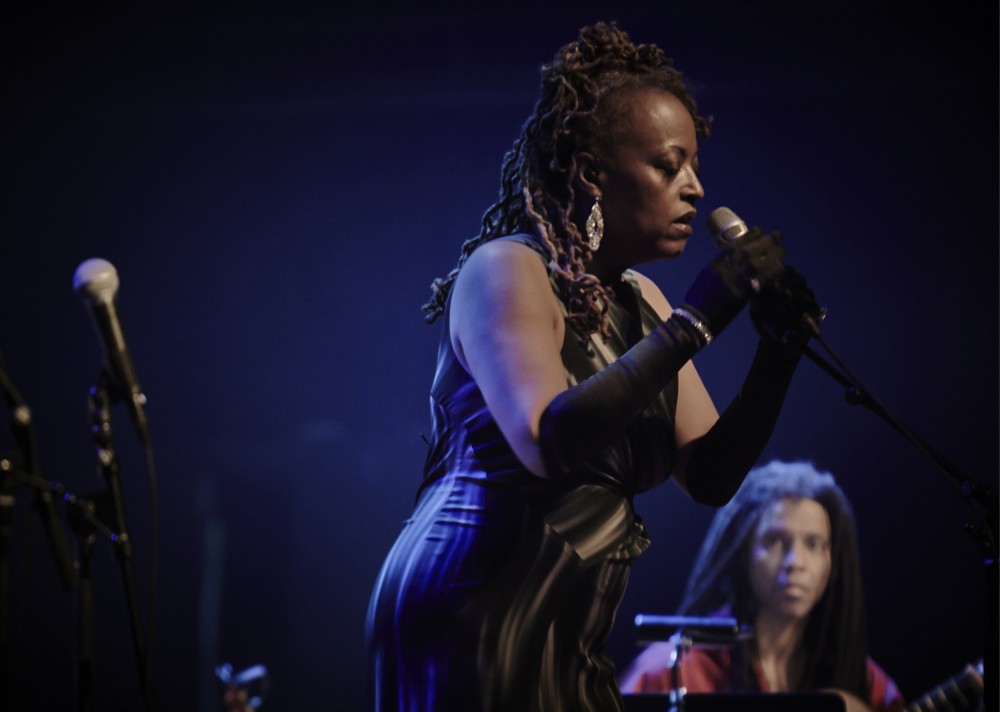Concert Hall, June 15

One almost has to recalibrate one’s listening to absorb Cassandra Wilson. She sings without showing off her technique or feeling obliged to impale us to the rear wall. Her accompaniment is often like a breeze passing through a wheat field: a subdued rustle and thrum that lets her remarkable voice stretch and sprawl without having to over-extend.
Wilson is routinely called a contralto, but the centre of her range is lower, and the timbre as lavish as a cello. Like a bowed instrument it wafts and glides and fills the air with little sense of the attack sound of consonants, and yet it is also vast, and not just thanks to electricity. You can feel the power held in reserve, as you might have with a great swing-era saxophonist.
Some may debate the relevance of this analogy given that her repertoire – pop, blues and original songs – is rendered within her unique take on Americana roots music. But every nerve-ending between her heart, lungs, larynx, lips and brain is soaked in jazz. Wilson has just eliminated all the look-at-me inanity that contaminates nine out of 10 so-called jazz singers.
Complementing her was an eccentric band led by the virtuoso chromatic harmonic player Gregoire Maret, who could generate woodwind-like sweetness of line and tone, or the lacerating primality of ’60s saxophone. Acoustic guitarist Brandon Ross was pivotal on Wilson’s Blue Note recordings of two decades ago, and his minimalist signature defined the accompaniment. Charlie Burnham swapped between violin and mandolin, Lonnie Plaxico played superb bass (as he did when Wilson was last here in the 1990s) and Mino Cinelu’s bustling imagination at his hybrid drums/percussion set-up compounded the prevailing idiosyncrasy.
The improbable highlight was Wichita Lineman, which had my lady love in tears and my own skin crawling. Some songs, including Children Of The Night, dragged the minimalism towards meandering, but essentially the opulent voice and its accompaniment cast a deepening spell.